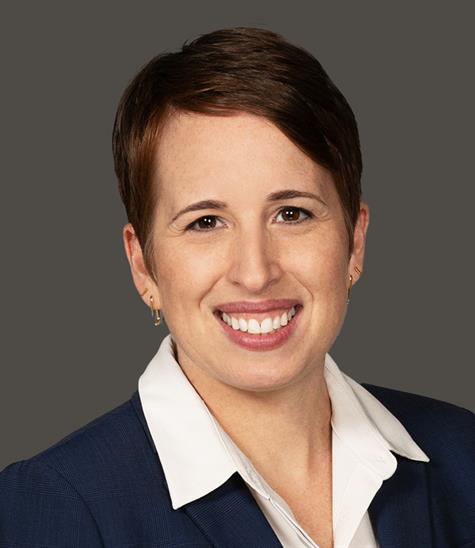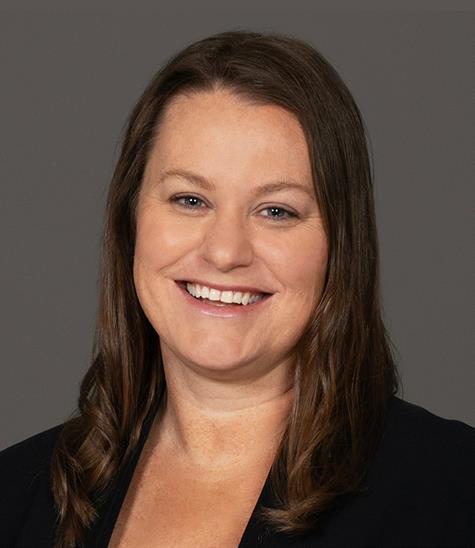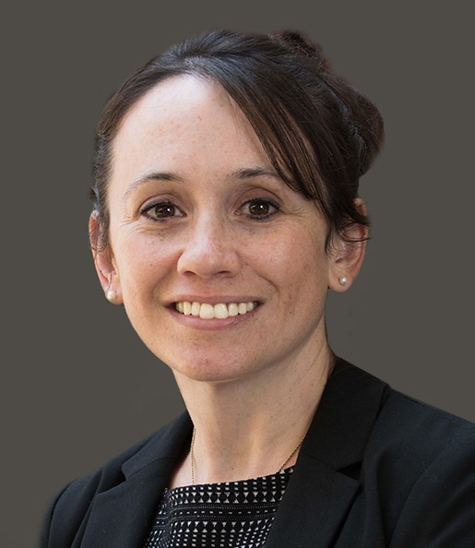
Child Custody Attorney in San Francisco
Comprehensive Child Custody Solutions for Bay Area Families
Litigation over child custody rights and parenting time is complex and emotionally charged. A child custody case can arise during the dissolution of a marriage (divorce) or domestic partnerships in San Francisco, CA. Understanding legal procedures is vital for pursuing the best outcome for your family. Our team uses a holistic approach, considering family dynamics to help parents make decisions that protect their children’s best interests. We recognize the challenges of navigating child custody in San Francisco and remain dedicated to providing direct, individualized support throughout the process.
Our attorneys have built strong working relationships within Bay Area courts, including the Civic Center Courthouse in San Francisco, which handles many family law matters. We know local court protocols, filing deadlines, and mediation options—guiding our clients to streamline child custody proceedings and reduce unnecessary stress during challenging times.
To speak with our experienced San Francisco child custody lawyer, give us a call at (415) 539-0422 or contact us online today.
How Can a Father Get 50/50 Custody in California?
Both parents can decide on a 50/50 child custody arrangement by documenting an agreement that works for both their children and themselves outside of family court, or the court may order it with proper evidence.
Joint custody in California requires genuine cooperation between both parents. Effective co-parenting depends on a detailed and flexible parenting plan that values each parent’s involvement and supports the child’s needs. Our attorneys encourage open communication and practical conflict resolution to keep decision-making focused on your child’s well-being.
San Francisco courts encourage parents to use mediation before litigating custody. The Superior Court’s mediation services help parents develop custody plans that fit their child’s needs, considering city-specific challenges like commute times and school location. Parents willing to plan ahead and anticipate changes show the court their commitment to cooperative parenting, which can support shared custody.
Our goal, as attorneys, is to reach the best arrangement out of court whenever possible, but we remain prepared to advocate for your interests in court if needed. By guiding parents in managing shared custody arrangements, we aim to preserve stability for children and foster healthy relationships over time.
Navigating the Emergency Custody Process in San Francisco
Emergency custody orders address immediate risks to a child’s safety or welfare. In San Francisco, the Superior Court may grant temporary emergency orders if a parent presents clear evidence that a child faces harm or abduction. This process often includes a rapid hearing, where a judge evaluates pressing safety issues such as abuse, neglect, or credible threats. Applicants seeking emergency custody must provide specific, factual details, as the court responds quickly but carefully when protecting children.
Local judges often consider documentation from law enforcement or social services when reviewing emergency requests. The court can issue temporary custody orders until a formal hearing, where both parents may introduce more evidence and testimony. Our team supports parents through each step, providing guidance and ensuring families understand San Francisco’s court requirements and procedures for these urgent situations.
What Voids a Custody Agreement in California?
If one parent violates a court-ordered custody agreement, the other parent may lose time with their child and disrupt the arrangement imposed by the court.
When either parent interferes with scheduled parenting time, they break the court order for visitation. To prevent disputes, parents should stay in regular communication and follow the agreement explicitly. Legal options exist to address violations, and consulting with an attorney may clarify how to enforce or modify custody agreements to ensure compliance.
In San Francisco County, families usually start enforcement procedures with the Unified Family Court, which can review motions for contempt or modification if a party repeats violations. The court may also direct parents toward mediation or counseling services to work through conflict. Using these resources can help resolve disputes faster, ease stress for the child, and build a more reliable arrangement.
Protecting Your Child Custody Rights in San Francisco
Decisions during child custody cases and visitation schedules shape your child’s life deeply. In California, judges make child custody determinations based on what best supports the child.
Family law courts in San Francisco consider each case on its facts, weighing more than day-to-day care. Courts request parenting plans that spell out holiday schedules, health care, and educational responsibilities. Presenting a thorough and realistic plan can sway a judge’s decision and affect your child’s daily routines. Our attorneys help you present documentation and testimonies that show your commitment to your child’s well-being.
Our child custody lawyers focus on protecting the child’s best interests in each case and guiding parents to informed decisions. We use a child-centered approach, promoting stability and security for children. We help families address disputes by providing solutions that limit friction and encourage positive co-parenting.
Children sometimes suffer during drawn-out custody battles, particularly over parenting time and decision-making. Our attorneys help clients maintain time with their children and work to prevent lasting harm. We balance both the child’s needs and the parent’s rights, preparing families for positive long-term outcomes.
The Child Custody Timeline: What to Expect in San Francisco
Child custody cases in San Francisco usually move through several steps, with timing affected by court schedules and the details of your family’s situation. After filing the first request, most parents attend a Family Court Services mediation session because the local court system requires this before most contested hearings. If both parents agree, a judge will likely approve and formalize their arrangement. If they cannot agree, the case goes to a hearing or trial where both sides present their position.
Court calendars and backlogs can influence how soon families receive a final custody order. Some cases settle within weeks, while others that last longer may stretch on for several months. Preparation and responsive communication with your attorney help reduce delays. At Van Voorhis & Sosna LLP, we keep clients informed and organized, which can prevent unnecessary setbacks. San Francisco’s centralized family law courthouse streamlines some steps compared to other nearby counties.
Navigating Child Custody Laws in San Francisco
Understanding local laws in San Francisco is essential to achieving the outcome you want in a child custody matter. The city’s courts follow California family law, always prioritizing the child’s best interests. Judges in San Francisco work to protect the child’s stability after a parental split, focusing on schedules, support arrangements, and realistic joint parenting options.
San Francisco’s family courts handle many types of family situations and structure custody arrangements to account for parents’ work obligations and city living. Judges might involve social workers or counselors, especially when deciding complex parenting plans for families spread across different neighborhoods. Our attorneys guide clients in assembling the right documents and meeting court expectations—such as timely financial disclosures and participating in required mediation.
San Francisco courts also adapt to modern families, including those in the LGBTQ+ community and non-traditional parenting structures. Our team at Van Voorhis & Sosna LLP helps you navigate these unique circumstances and supports you at every stage, from initial paperwork through each local court procedure and deadline.
Community Resources & Support for Families
San Francisco families can use city and county resources when navigating custody disputes. The San Francisco Family Court offers mediation and runs parenting workshops to support healthy co-parenting after separation. These programs help keep parents focused on good communication and conflict resolution—a key to long-term success.
The Family Law Facilitator’s Office guides parents on custody paperwork and helps with questions about court processes. The Community Justice Center also supports families involved in the court system. Court-mandated parenting classes, held at multiple sites across San Francisco, make meeting court requirements more accessible.
Support groups and counseling organizations help children and parents adjust to new arrangements. Groups like Family Paths and the San Francisco Child Abuse Prevention Center offer resources that can help families recover and adjust after significant family changes. Local resources empower families to focus on the child's well-being and to create positive environments at home.
How Hard Is It to Get Full Legal Custody in California?
A parent must present substantial evidence to receive full custody in San Francisco, CA. The family court looks for compelling reasons, always aligned with the child’s best interests, before granting sole custody. Requests often rely on proof that the other parent cannot meet the child’s needs, such as concerns over safety, emotional health, or long-term stability. Our attorneys provide guidance on collecting strong documentation and presenting a compassionate argument that fits court requirements.
San Francisco courts sometimes request home studies, interviews with the child, or evaluations by outside professionals before deciding on full legal custody. Parents may need to provide parenting histories, educational records, or documentation related to the child’s well-being. Understanding how these materials factor into the court’s decision can help parents prepare for what lies ahead.
Criteria for Determining Parental Fitness in California
In California, a parent’s history of violence, substance abuse, or incarceration can lead a court to find them unfit for custody. Judges rarely end all contact between a parent and child, but consider many forms of evidence in their decisions.
Bay Area courts rely on detailed reports, and sometimes order supervised evaluations to review parental fitness. Judges weigh police records, medical documentation, and parent communications when making decisions. Courts may also use local resources such as supervised visitation centers or court-appointed monitors to keep children safe and provide evaluations.
Any of the circumstances above—if proven—may be enough for a court to conclude that a parent is unfit. The courts weigh parental fitness factors such as moral character, mental health, and lifestyle impacts on the child. Our team guides parents through these detailed assessments and helps them understand the standards that courts use in these cases.
San Francisco Child Custody Advocates Ready to Assist
Our child custody attorneys represent clients in child custody and visitation proceedings throughout San Francisco County, San Mateo County, Marin County, Alameda County, and Contra Costa County. Our understanding of regional courts allows us to tailor strategies to the requirements of each local jurisdiction. This knowledge of local legal differences gives families stronger guidance during the process.
We are familiar with court calendars, filing processes, and the style of local judges, so we help clients avoid confusion and unnecessary delays. We can explain the benefits of resolving custody at the 400 McAllister Street courthouse or handling issues through mediation. Our team’s experience in the Bay Area’s family law system helps families navigate the local court structure with greater confidence.
Trusted Child Custody Lawyers in San Francisco
Our child custody lawyers serving San Francisco are committed to representing every client with integrity, dedication, and an understanding that you place your trust in our firm to resolve your divorce or family law matter. We address each case with care, recognizing the unique family dynamics involved and working toward resolutions that support long-term family harmony. We empower clients with information and focused advocacy to help protect their rights and build stable futures.
Understanding Joint Custody in California
In California, joint custody means both parents share responsibility for making decisions about their children. Parents may share legal custody, physical custody, or both. Joint legal custody gives both parents decision-making authority, while joint physical custody gives each parent significant time with the child.
Court-ordered joint custody in San Francisco often requires detailed planning. School routes, extracurricular programs, and workable transportation plans are key in a city with varied neighborhoods. Our attorneys help local families solve these challenges, focusing on practical solutions that work with city life, not against it.
Factors that may influence a joint custody arrangement include:
- Each parent's ability to provide a stable and loving environment
- The child's relationship with each parent
- The child's adjustment to their home, school, and community
- The ability of the parents to communicate and cooperate
Our San Francisco child custody lawyers help families review the legal requirements and explore joint custody options that put the child’s interests first. We focus on developing flexible plans that keep pace with changing circumstances and promote security for children and parents alike.
Designing a Parenting Plan for San Francisco Families
Every family is different, and creating the best parenting plan requires reviewing the unique details of your lives. At Van Voorhis & Sosna LLP, our experienced child custody attorneys help families in San Francisco navigate the demands of parenting plans with a focus on practical solutions that work today and can adapt over time.
Modern family life in San Francisco often requires parenting plans that account for transportation needs, school activities, and parents’ job schedules. Agreements cover public transit, carpools, and flexibility in living arrangements when schedules change. Judges value realistic, forward-thinking plans that protect a child’s routine and relationships with both parents.
Here are some key considerations when developing a parenting plan:
- Child's age and developmental needs
- Work schedules and the availability of both parents
- Proximity of each parent’s residence to the child's school and extracurricular activities
- Ability to communicate effectively and make joint decisions regarding the child’s upbringing
- Flexibility and willingness to accommodate changes in the schedule
- Any special needs or medical requirements of the child
Our team supports families as they plan for a child-focused co-parenting arrangement. We encourage thoughtful communication and problem-solving that foster respect, support, and routine—even in complex family situations.
Understanding the Impact of Child Custody on Your Family
Child custody choices have lasting effects on parents and children. At Van Voorhis & Sosna LLP, we help clients see the broader impact of each decision so they can make choices that serve their child's best interests—both today and in the future.
Courts often support plans that maintain a child’s stability, taking local school calendars and community programs into account. Parenting plans can address summer camp, holidays, and school breaks to ease transitions. Adjusting custody schedules with these factors helps families manage changes more smoothly.
Here are some key factors to consider when thinking about child custody:
- Emotional well-being: Custody arrangements can strongly impact a child’s mental health. Maintaining relationships with both parents benefits their growth.
- Stability and routine: Children need predictable routines. A detailed plan offers the stability they need to thrive.
- Communication: Open dialogue between parents supports smooth transitions and teaches children positive conflict-resolution skills.
- Future considerations: Custody arrangements may need to change over time. Building flexibility into agreements prepares your family for what comes next.
Our attorneys guide families through these considerations, combining up-to-date research with practical insight to help you set the stage for healthy family dynamics long-term.
Frequently Asked Questions About Child Custody in California
Navigating child custody can bring up many questions. The following answers address some of the common issues parents face.
1. What Factors Do Courts Consider in Child Custody Cases?
Courts review a range of factors, including the child’s age, health, emotional bonds with each parent, and each parent’s ability to provide a stable home. They also look at any history of violence, substance abuse, or criminal activity to safeguard the child’s well-being.
2. Can Custody Arrangements Be Modified?
Yes, courts may modify custody if there is a significant change in the child’s needs, a parent’s living situation, or employment. The parent requesting the change must show how the modification aligns with the child’s best interests.
3. How Can I Ensure My Child’s Best Interests Are Prioritized?
Courts value consistent documentation of your involvement, reliable communication with your co-parent, and a willingness to compromise. Keep records of your contributions and engagement in your child’s activities—you may need to demonstrate your ongoing commitment.
4. What Are the Benefits of Hiring a Child Custody Lawyer?
A skilled child custody attorney can explain the law, outline the process, and advocate for arrangements that meet your family’s needs. Legal guidance helps you avoid mistakes, meet deadlines, and navigate mediation or court when needed.
5. How Can Mediation Help in Child Custody Disputes?
Mediation gives parents a chance to discuss disagreements and reach an agreement outside of court. A neutral mediator helps guide productive conversations so parents can design a plan best for their child.
6. What Steps Should I Take if My Ex-Partner Violates a Custody Agreement?
Document each violation and keep detailed records. If needed, speak with a child custody attorney who can help you pursue legal enforcement or clarify your options for protecting your child’s rights.
For any additional questions or to schedule a consultation, don’t hesitate to reach out to Van Voorhis & Sosna LLP. We’re here to support you every step of the way.
Cost & Timing Considerations for Child Custody Cases in San Francisco
Families want to know what to expect for costs and timing in child custody cases in San Francisco. Fees vary based on the dispute’s complexity, whether parents can reach an agreement before trial, and the need for additional court hearings. Local court schedules and filing fees affect the total expense. Schedule a complimentary consultation to discuss your situation and learn strategies for controlling fees.
The length of a custody case depends on the court’s calendar, the parents’ cooperation, and the need for mediation or hearings. Some cases resolve in weeks; cases with multiple court dates and evaluations may last for months. We maintain clear, honest communication about these timing and cost factors and work to prioritize your family’s well-being at every stage.
Key Differences in San Francisco Family Court Procedures
San Francisco family law cases are handled at the Civic Center location, which unifies all child custody matters at one central courthouse. This approach streamlines filings, hearings, and support services for local families and reduces confusion by keeping every phase of the process in one place.
San Francisco courts also require mediation for contested custody matters, so preparing for mediation is important. Family Court Services counselors run these sessions, helping parents find solutions that prioritize their child’s needs. Participating in mediation may help families avoid drawn-out court battles. Our experience shows that working with a skilled legal team supports this process and protects your child’s best interests throughout every phase.
Connect with Van Voorhis & Sosna for Child Custody Help
Speak to a family law lawyer about divorce, child custody, child support, visitation, or other legal family-related issues in the San Francisco Bay Area. Ready to Discuss Your Case? Contact Our San Francisco Attorneys
To speak with our experienced San Francisco child custody lawyer, give us a call at (415) 539-0422 or contact us online today.
What Sets Us Apart?

-
Over 100 Years of Combined Experience
-
Highly Educated & Recognized for Excellence
-
We Have Certified Family Law Specialists
-
We Add Value for Our Clients








